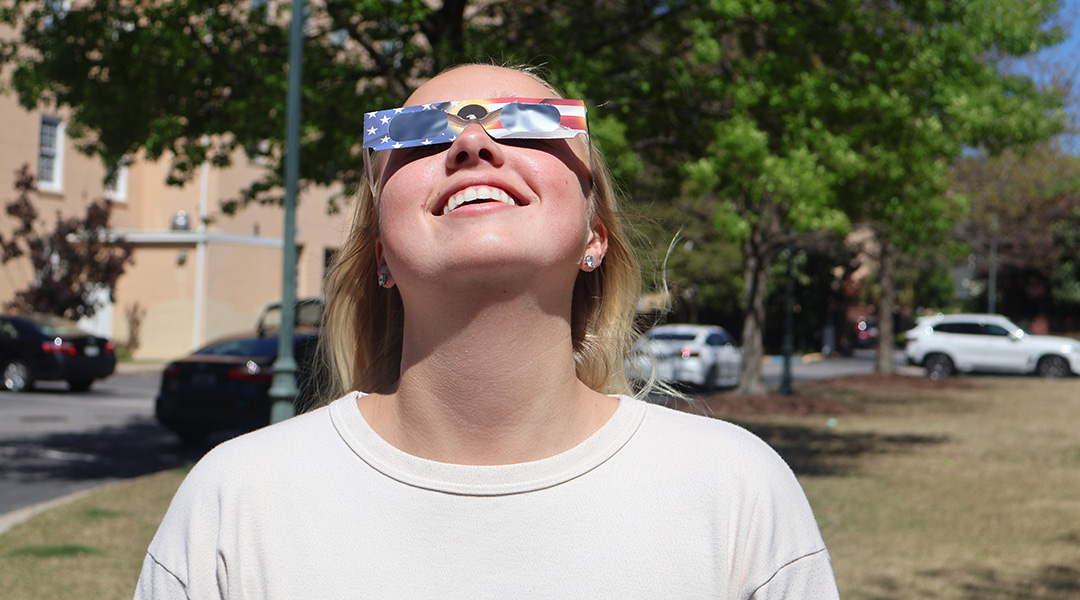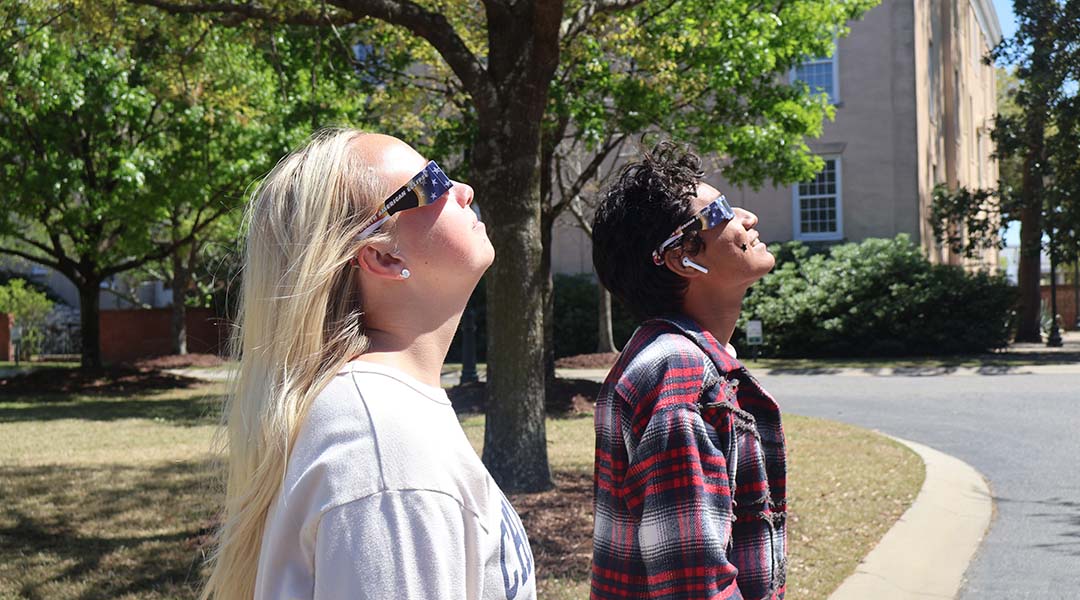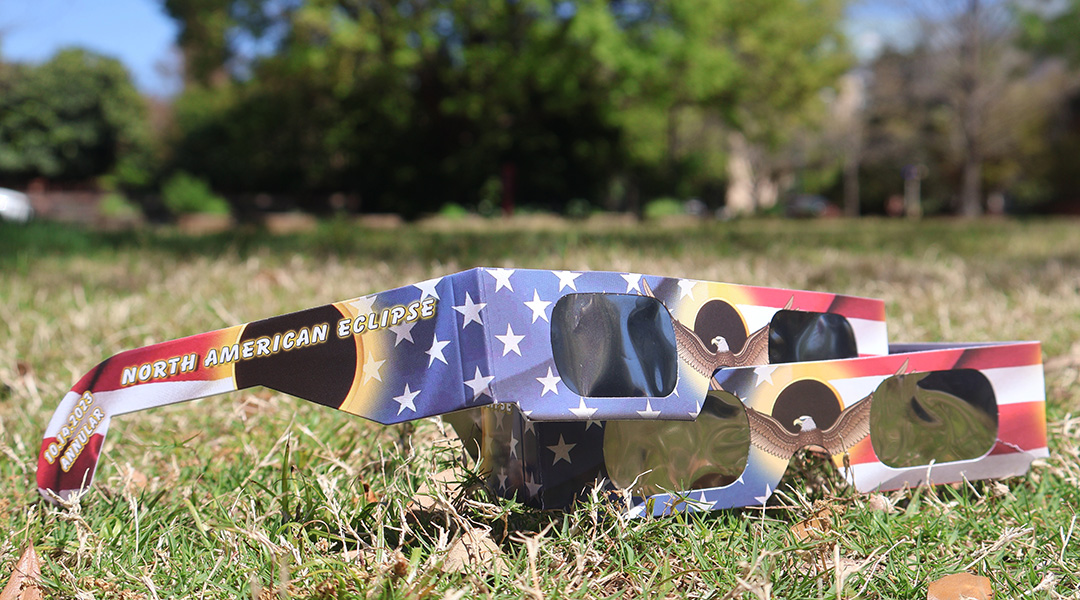If you’re looking toward the sun on Monday, you must be wearing special eclipse glasses. (Photo illustrations by Amanda Petty/Carolina News and Reporter)
Need a reason to skip out on class or work on Monday afternoon? A partial eclipse is the perfect excuse.
On Monday, April 8, 2024, a partial solar eclipse will begin at 1:52 p.m., reach its maximum at 3:10 p.m. and end at 4:25 p.m., according to the South Carolina State Museum’s website.
Since South Carolina is not on the path of totality, Columbians will only be able to see 75% of the eclipse, said Liz Klimek, the museum’s planetarium manager.
“And that sounds impressive, but really you’re not going to notice any environmental differences,” she said. “… The sky is not really going to darken, you know, at all – it might seem to darken a little bit … But that’s it, so nobody’s really going to notice anything.”
But because it’s dangerous to look at a partial solar eclipse, Dr. Varsha Kulkarni, astronomy professor at the University of South Carolina, said you must never look at it directly.
“(The sun’s) so close to us that even if you look at any part of the sun’s disk, there’s enough energy coming from that, that it will permanently damage your eyes,” Klimek said.
Both Klimek and Kulkarni said you must wear special solar eclipse glasses to gaze at the sun.
The American Astronomical Society has a list of safe solar viewers and filters here.
But, Klimek said that if you can’t get glasses, there are other indirect measures of viewing a partial and total eclipse, like using your hands or making a pinhole projector.
Solar eclipse glasses are being sold around the Midlands in advance of the eclipse at convenience and grocery stores and at the S.C. State Museum.
The museum, which has a planetarium, will not be open on Monday for the partial eclipse. But USC’s Melton Observatory will be open to the public from 2 p.m. to 4:30 p.m for a special viewing.




